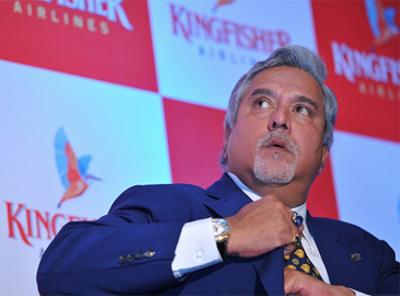 New Delhi, Mar 11: Under fire from the media, politicians and middle class, liquor baron Vijay Mallya, who owes Rs 9,000 crore to various banks, has reiterated that he is not an absconder but an international business man who travels to and from India frequently.
New Delhi, Mar 11: Under fire from the media, politicians and middle class, liquor baron Vijay Mallya, who owes Rs 9,000 crore to various banks, has reiterated that he is not an absconder but an international business man who travels to and from India frequently.
Mallya had left the country on 2 March, the day the State Bank of India filed a petition in the Bengaluru debt recovery tribunal seeking to impound his passport.
In a series of tweets, Mallya said he has not fled from India:
I am an international businessman. I travel to and from India frequently. I did not flee from India and neither am I an absconder. Rubbish.
— Vijay Mallya (@TheVijayMallya) March 10, 2016
He has also accused the media of carrying out a witch hunt:
As an Indian MP I fully respect and will comply with the law of the land. Our judicial system is sound and respected. But no trial by media.
— Vijay Mallya (@TheVijayMallya) March 10, 2016
And also a veiled threat to the media:
Let media bosses not forget help, favours,accommodation that I have provided over several years which are documented. Now lies to gain TRP ?
— Vijay Mallya (@TheVijayMallya) March 10, 2016
The banks, who gave him loans after loans to keep his dying aircraft afloat, also came under fire:
It is the second time in as many weeks that Mallya is clarifying that he is not an absconder.
However, this time his clarification raises serious questions since this has come at a time when media reports have details about how he managed to fly out the country just a day after he attended the Rajya Sabha session.
A report in The Times of India on Friday says "the "wilful defaulter's" flight out of India (on 2 March) was in the lap of luxury". Giving out further details, the report citing a government official says that Mallya flew out in Jet Airways' Delhi-London flight 9W 122 on 2 March on a first class ticket. He was also accompanied by a woman and had seven huge baggages, the report says, which doesn't quite seem like a business trip.
Also if he is indeed not an absconder why did he not disclose his location in at least his tweets?
However, PTI had earlier reported that he may be in his country home in an English village about an hour's drive north of London.
The UB Group chairman and Rajya Sabha member is thought to have driven to his 'Ladywalk' estate in the village of Tiwen near St Albans in Hertfordshire from his London home near Baker Street area earlier this week, the report said.
This is likely to be true as he had only last month after his sweetheart deal with Diageo said that he wanted to move to the UK to be closer to his children.
"My statement as to my personal future after quitting Diageo/USL — that I want to spend more time in England closer to my children — has been grossly distorted and mis-portrayed.
I wish to reduce my business commitments gradually and devote more time to my family, and that my resignation from United Spirits was a step in this direction," he had said in the statement after the deal.
As part of the deal he resigned as chairman and director of United Spirits, the company he had sold to Diageo; agreed not to compete with Diageo in spirits business the world over for the next five years; and not to interfere in its Indian arm's business matters. Mallya was also to get a severance package of $75 million of which he may have already received $40 million as initial payment.
Even his tweet about the asset declaration in the Rajya Sabha has to be taken with a pinch of salt. A report in NDTV says the affidavit he filed in 2010, when he became the Rajya Sabha member for the second time, shows that he has no property and debt.
However, contrary to the declaration that he owns no property, PTI report says Mallya owns plush properties in California and the UK, has one of the biggest country homes on Queen Hoo Lane in the village of Tewin.
Moreover, attorney general Mukul Rohatgi had told the Supreme Court that abroad Mallya has assets, both movable and immovable, which are far excessive to loans secured by him here.
The Supreme Court on Monday ordered to issue notice for him to return to India with his passport. It is expected to be served to him via the Indian High Commission in London some time this week, the sources have told PTI.
However, the Indian mission has so far issued no statement on the timeline of the notice.
He likes to drop in at the local pubs during his visits there but has not been spotted around the village so far this week, choosing to stay inside his 30-acre estate guarded by customary iron gates that mark most sprawling country estates in English villages, the PTI report said.





Comments
Add new comment